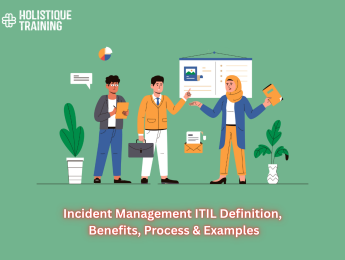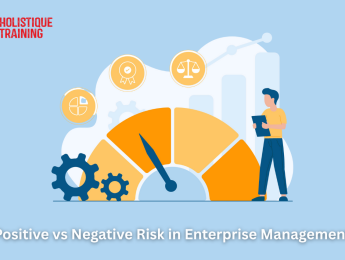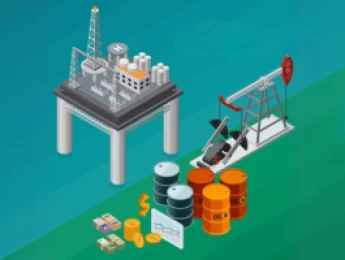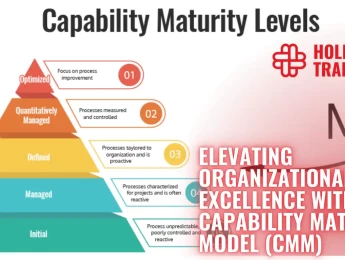- Table of Contents
- What Is Construction Management and Its Role in Projects?
- Why Is Effective Planning Crucial in Construction Management?
- How Does Construction Management Ensure Safety on Sites?
- How Does Construction Management Impact Project Timelines?
- What Are the Environmental Considerations in Construction Management?
- What Skills Are Essential for Success in Construction Management?
Introduction
In the realm of construction, effective management is the linchpin that ensures projects are delivered successfully, on time, within budget, and to the desired quality standards. This article delves into the multifaceted world of construction management, exploring its pivotal role in overseeing every aspect of construction projects. From meticulous planning and resource allocation to stringent safety measures and environmental considerations, construction management encompasses a diverse array of skills and strategies crucial for project success. Let's delve deeper into the essential components and impact of construction management across various project facets.
What Is Construction Management and Its Role in Projects?
Construction management involves planning, coordinating, and overseeing construction projects from start to finish. It encompasses various aspects such as budgeting, scheduling, quality control, safety management, and communication with stakeholders.
The role of construction management in projects is multifaceted:
- Planning and Organization: Construction managers develop detailed project plans, including timelines, resource allocation, and procurement strategies. They ensure that all necessary permits and approvals are obtained before commencing work.
- Cost Management: They are responsible for budgeting and cost control throughout the project, monitoring expenses, negotiating contracts with vendors, and identifying cost-saving opportunities.
- Scheduling: Construction managers create schedules to sequence project tasks efficiently, manage subcontractors, and maintain progress according to deadlines.
- Quality Assurance: They implement quality control measures to ensure that construction meets industry standards and client expectations. This includes inspections, testing, and resolving any issues that may arise during construction.
- Safety Management: Construction managers prioritize safety on-site by enforcing safety protocols, conducting safety training for workers, and implementing measures to prevent accidents and injuries.
- Communication and Collaboration: They facilitate communication among project stakeholders, including architects, engineers, contractors, and clients, to ensure everyone is aligned with project goals and timelines.
Overall, construction management plays a crucial role in delivering successful construction projects by overseeing every aspect of the process and ensuring that projects are completed on time, within budget, and to the required quality standards.
Why Is Effective Planning Crucial in Construction Management?
Effective planning is crucial in construction management for several reasons:
- Resource Allocation: Planning helps allocate resources such as materials, equipment, and labor efficiently, minimizing waste and optimizing productivity.
- Budget Management: A well-developed plan allows construction managers to create accurate budgets, track expenses, and identify cost-saving opportunities throughout the project lifecycle.
- Time Management: Planning establishes realistic timelines and milestones, ensuring that project tasks are sequenced in a logical order to meet deadlines and avoid delays.
- Risk Mitigation: Through comprehensive planning, potential risks and challenges can be identified early, allowing construction managers to develop contingency plans and mitigate risks effectively.
- Coordination of Stakeholders: Planning facilitates clear communication and coordination among project stakeholders, including architects, engineers, contractors, and subcontractors, fostering collaboration and alignment with project goals.
- Quality Control: A detailed plan includes quality control measures, inspections, and testing protocols to ensure that construction meets industry standards and client expectations.
- Regulatory Compliance: Planning includes obtaining necessary permits, approvals, and complying with regulatory requirements, ensuring legal compliance and avoiding costly delays or penalties.
In essence, effective planning in construction management lays the foundation for successful project execution by optimizing resources, managing budgets and timelines, mitigating risks, ensuring quality, fostering collaboration, and maintaining regulatory compliance throughout the construction process.
How Does Construction Management Ensure Safety on Sites?
Construction management plays a crucial role in ensuring safety on construction sites through various proactive measures and strategies:
- Developing Safety Plans: Construction managers create comprehensive safety plans that outline safety protocols, procedures, and emergency response strategies specific to each project. These plans address hazards, risks, and safety requirements relevant to the site and activities.
- Implementing Safety Training: They conduct regular safety training sessions for all workers, subcontractors, and site personnel, focusing on hazard recognition, proper use of equipment, safe work practices, and emergency procedures. Training helps promote a safety culture and ensures everyone understands their responsibilities.
- Enforcing Safety Regulations: Construction managers enforce strict adherence to safety regulations, standards, and codes set by regulatory bodies such as OSHA (Occupational Safety and Health Administration). They conduct regular inspections to identify and rectify safety hazards promptly.
- Providing Personal Protective Equipment (PPE): Construction managers ensure that all workers have access to and use appropriate personal protective equipment such as helmets, gloves, goggles, and safety harnesses as required by the nature of the work.
- Implementing Safety Technologies: They leverage technology solutions such as safety monitoring systems, wearable devices, and drones for site inspections to enhance safety monitoring and identify potential risks proactively.
- Maintaining Site Security: Construction managers implement measures to control access to the site, secure equipment and materials, prevent unauthorized entry, and mitigate theft or vandalism risks, contributing to overall site safety.
- Conducting Safety Audits: They conduct regular safety audits and reviews to assess compliance with safety protocols, identify areas for improvement, and implement corrective actions to enhance safety performance continuously.
- Promoting Safety Communication: Construction managers foster open communication channels for reporting safety concerns, incidents, near misses, and implementing lessons learned to prevent future accidents.
Table 1: Safety Measures in Construction Management
Safety Measure | Description |
Developing Safety Plans | Creating comprehensive safety plans with protocols, procedures, and emergency response strategies tailored to each project. |
Implementing Safety Training | Conducting regular safety training sessions for workers, subcontractors, and personnel on hazard recognition, equipment use, and safe practices. |
Enforcing Safety Regulations | Ensuring strict adherence to safety standards, codes, and regulations set by authorities like OSHA through regular inspections and corrective actions. |
Providing Personal Protective Equipment | Ensuring availability and proper use of PPE such as helmets, gloves, goggles, and safety harnesses as per job requirements. |
Implementing Safety Technologies | Utilizing technology like safety monitoring systems, wearable devices, and drones for proactive risk identification and safety enhancement. |
Maintaining Site Security | Implementing measures to control access, secure equipment, prevent unauthorized entry, and mitigate security risks like theft or vandalism. |
Conducting Safety Audits | Regularly assessing compliance with safety protocols, identifying improvement areas, and implementing corrective actions for enhanced safety performance. |
Promoting Safety Communication | Fostering open channels for reporting safety concerns, incidents, and lessons learned to prevent future accidents and promote a safety-oriented culture. |
By integrating these safety measures into their management practices, construction managers contribute significantly to creating a safe work environment on construction sites, minimizing accidents, injuries, and promoting the well-being of all personnel involved in the project.
How Does Construction Management Impact Project Timelines?
Construction management plays a crucial role in impacting project timelines in several ways:
- Effective Planning and Scheduling: Construction managers develop detailed project plans and schedules that outline tasks, milestones, and timelines. They sequence activities logically, allocate resources efficiently, and establish realistic deadlines, ensuring smooth project progression and adherence to timelines.
- Resource Management: Construction managers oversee the allocation and utilization of resources such as labor, equipment, and materials. By coordinating resource availability and workflow, they prevent bottlenecks, optimize productivity, and minimize downtime, contributing to on-time project completion.
- Coordination of Stakeholders: Construction managers facilitate communication and collaboration among project stakeholders, including architects, engineers, contractors, subcontractors, and suppliers. Clear communication and coordination ensure that everyone is aligned with project goals, timelines, and responsibilities, reducing conflicts and delays.
- Monitoring and Tracking Progress: Construction managers monitor project progress regularly, track milestone achievements, and identify potential delays or deviations from the schedule. They implement corrective actions promptly, such as reallocating resources or adjusting timelines, to keep the project on track and mitigate schedule risks.
- Risk Management: Construction managers anticipate and address potential risks and obstacles that could impact project timelines. They develop risk management strategies, contingency plans, and mitigation measures to minimize the impact of unforeseen events, such as weather disruptions, supply chain issues, or regulatory delays.
- Quality Control: Construction managers ensure that work is completed according to quality standards and specifications. By maintaining quality throughout the construction process, they reduce rework, delays due to defects, and disruptions that could affect project timelines.
- Contract Management: Construction managers manage contracts with vendors, subcontractors, and suppliers effectively. Clear contractual agreements, timely payments, and dispute resolution mechanisms help maintain positive relationships and prevent delays caused by contract-related issues.
- Adaptation to Changes: Construction managers are proactive in addressing changes in project scope, requirements, or conditions. They assess the impact of changes on timelines, adjust schedules as needed, and communicate changes to stakeholders promptly to minimize schedule disruptions.
Overall, construction management's impact on project timelines is significant, as it involves strategic planning, efficient resource management, stakeholder coordination, risk mitigation, quality control, contract management, and adaptability to changes—all aimed at ensuring projects are completed on time and within schedule constraints.
What Are the Environmental Considerations in Construction Management?
Environmental considerations in construction management encompass a range of practices and strategies aimed at minimizing the environmental impact of construction activities and promoting sustainability. Here are some key aspects:
- Site Selection and Planning: Construction managers consider environmental factors when selecting project sites, such as avoiding sensitive ecosystems, preserving natural habitats, and minimizing disturbance to biodiversity. They also plan construction layouts to reduce land clearing and maximize green space preservation.
- Resource Efficiency: Construction managers promote resource-efficient practices by optimizing material usage, reducing waste generation, and recycling or reusing materials whenever possible. They prioritize sustainable materials with low environmental impact, such as recycled content, renewable resources, and energy-efficient products.
- Energy Conservation: Construction managers implement energy-efficient design principles and technologies to minimize energy consumption during construction and operation phases. This includes using energy-efficient HVAC systems, lighting, insulation, and renewable energy sources like solar or wind power.
- Water Management: Construction managers incorporate water conservation measures, such as using low-flow fixtures, rainwater harvesting systems, and efficient irrigation techniques. They also manage stormwater runoff to prevent pollution and erosion, implementing green infrastructure solutions like permeable pavements and vegetated swales.
- Waste Management: Construction managers develop waste management plans to reduce, reuse, recycle, and properly dispose of construction waste. They segregate waste streams, promote onsite recycling and salvage operations, and ensure compliance with waste disposal regulations to minimize environmental impact.
- Air Quality Control: Construction managers implement measures to control dust, emissions, and air pollutants generated during construction activities. This includes using dust suppression techniques, low-emission equipment, and implementing air quality monitoring programs to mitigate negative impacts on air quality.
- Hazardous Materials Management: Construction managers handle hazardous materials safely, following regulations for storage, handling, and disposal of hazardous substances such as lead-based paint, asbestos, and chemicals. They implement pollution prevention practices and environmental controls to protect workers and the surrounding environment.
- Ecological Restoration and Mitigation: Construction managers may engage in ecological restoration projects to mitigate environmental impacts, such as reforestation, wetland restoration, or habitat enhancement. They work with environmental specialists to develop mitigation plans and offset any adverse effects on ecosystems.
- Compliance and Certifications: Construction managers ensure compliance with environmental regulations, permits, and certifications, such as LEED (Leadership in Energy and Environmental Design) or Green Building certifications. They collaborate with environmental agencies, conduct environmental assessments, and implement best practices to achieve sustainability goals.
By integrating these environmental considerations into construction management practices, projects can minimize their environmental footprint, conserve natural resources, protect ecosystems, and contribute to sustainable development for future generations.
What Skills Are Essential for Success in Construction Management?
Success in construction management requires a diverse set of skills that encompass technical, managerial, interpersonal, and problem-solving abilities. Here are essential skills for effective construction management:
- Project Management: Proficiency in project management methodologies, including planning, scheduling, budgeting, resource allocation, risk management, and quality assurance. Strong organizational skills to oversee multiple projects simultaneously and ensure timely completion within budget constraints.
- Construction Knowledge: In-depth understanding of construction processes, methods, materials, and technologies. Familiarity with building codes, regulations, and industry standards to ensure compliance and quality control throughout projects.
- Technical Competence: Ability to interpret blueprints, construction drawings, and technical specifications. Proficiency in using construction management software, scheduling tools, CAD software, and other industry-specific technologies for project planning and documentation.
- Communication Skills: Effective communication with stakeholders, including clients, architects, engineers, contractors, subcontractors, suppliers, and regulatory authorities. Strong verbal and written communication skills to convey project requirements, updates, and resolutions clearly and professionally.
- Leadership and Team Management: Leadership skills to motivate teams, delegate tasks, provide direction, and foster a collaborative work environment. Ability to manage diverse teams, resolve conflicts, and promote teamwork for successful project outcomes.
- Problem-Solving and Decision-Making: Analytical skills to identify issues, evaluate alternatives, and make informed decisions under pressure. Critical thinking and problem-solving abilities to address challenges, adapt to changing circumstances, and implement effective solutions.
- Financial Management: Understanding of budgeting, cost estimation, financial analysis, and contract management. Ability to track project expenses, manage cash flow, negotiate contracts, and optimize resource allocation for cost-effective project delivery.
- Risk Management: Skills in identifying, assessing, and mitigating project risks. Proactive approach to anticipate potential challenges, develop contingency plans, and minimize disruptions that could impact project timelines and budgets.
- Time Management: Excellent time management skills to prioritize tasks, meet deadlines, and maintain project schedules. Ability to balance competing priorities, allocate resources efficiently, and optimize productivity without compromising quality.
- Client Relationship Management: Customer service orientation and relationship-building skills to understand client needs, address concerns, and maintain positive client relationships. Ability to manage client expectations, communicate project progress, and ensure satisfaction with project outcomes.
- Health, Safety, and Environmental Awareness: Commitment to promoting a safe work environment, adhering to health and safety regulations, and implementing environmental best practices. Awareness of safety protocols, hazard identification, and emergency response procedures to protect workers and the surrounding environment.
By honing these essential skills, construction managers can navigate complex projects, lead teams effectively, deliver high-quality results, and achieve success in the construction industry.
Conclusion
In conclusion, construction management is the backbone of successful construction projects, encompassing a wide range of responsibilities and skills essential for navigating the complexities of the industry. From the initial stages of planning and organization to the final stages of quality assurance and project completion, construction managers play a pivotal role in ensuring that projects are executed seamlessly and efficiently.
Throughout this article, we've explored the core components of construction management, including effective planning, safety management, environmental considerations, project timeline impact, and the essential skills required for success in this field. By integrating these aspects into their management practices, construction managers contribute significantly to achieving project objectives, meeting client expectations, and promoting sustainability.
As the construction industry continues to evolve with technological advancements, regulatory changes, and environmental consciousness, the role of construction management becomes increasingly vital. It not only drives project success but also fosters innovation, collaboration, and continuous improvement within the industry.
Ultimately, construction management serves as a catalyst for driving positive outcomes, delivering high-quality results, and shaping the future of construction practices to meet the demands of a dynamic and ever-changing world.


























